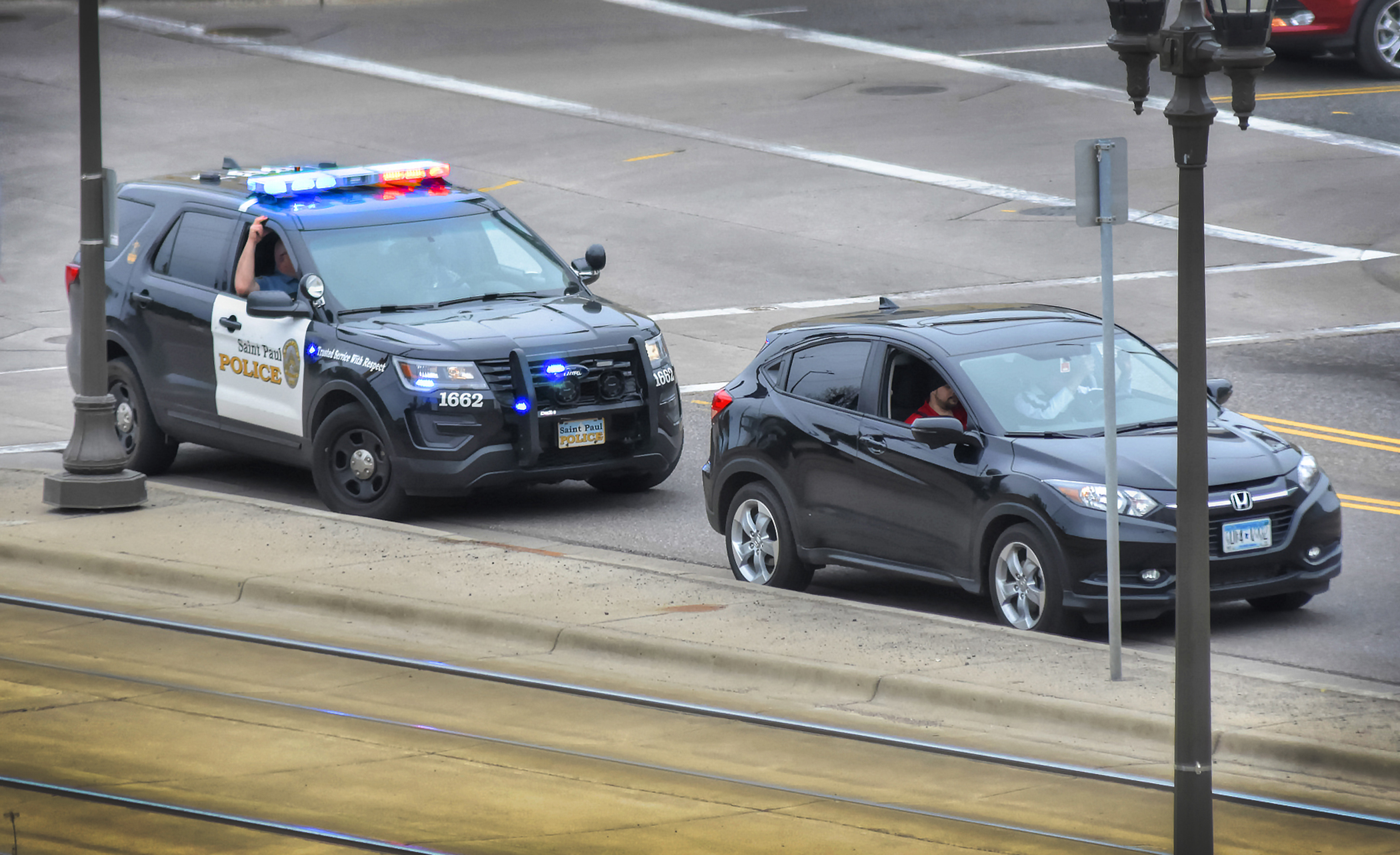House lawmaker hopes to lower temperature of traffic stops with change in law

What causes a routine traffic stop to become anything but routine, turning dangerous and even deadly?
Rep. Cedrick Frazier (DFL-New Hope) says a determining factor is often the race of the driver, with Black drivers experiencing escalated situations more frequently than other drivers.
He wants to change that via HF1832 that would require a peace officer making a traffic stop for a secondary offense of the motor vehicle code to inform the vehicle’s operator of a reason for the stop before engaging in questioning related to the suspected violation.
“What we are trying to do is decrease interactions that may be heightened or increased that may lead to further interactions that from what we have seen in our state in recent years could lead to very volatile and violent interactions which could to further distrust among law enforcement and communities,” he said.
Frazier stressed that provisions in the bill would only apply to low-level moving vehicle infractions such as missing or expired license plate tabs or other violations not significantly affecting the public’s safety if not immediately addressed.
The House Public Safety Finance and Policy Committee held the bill over, as amended, Wednesday evening for possible inclusion in a larger bill.
Studies have shown that communities enacting similar proposals have seen better public safety outcomes by freeing up police to focus on more serious crimes, said Amber Jones, managing director of policy impact at the African American Leadership Forum.
“Officers can enhance their effectiveness and improve overall safety on our roads by directing their attention to violations directly linked to road safety such as speeding and driving under the influence.”
Rep. Paul Novotny (R-Elk River) expressed concern that an officer at the driver-side door of a pulled-over vehicle would get in legal trouble if the stop “goes sideways” — by the driver brandishing a weapon or attempting to flee, for example — before the officer could tell the driver the reason for the stop.
Committee Chair Rep. Kelly Moller (DFL-Shoreview) said her interpretation of the bill makes her think an officer in that scenario would not be in legal trouble.
At the moment the interaction changed, it would no longer be a traffic stop, she said, therefore the newly proposed provisions in the bill would not apply.
Working group proposed
Frazier said another way to make traffic stop encounters safer is to have fewer of them.
To that end, the bill takes aim at a frequent reason for traffic stops: expired or missing license tabs.
Frazier understands the state must collect vehicle operation fees but wants to explore ways to handle non-payment that don’t require traffic stops.
The bill would establish a working group to identify and evaluate potential methods for enforcement of motor vehicle registration and registration tax payment requirements that would replace enforcement through the use of criminal penalties.
Duties of the working group would include studying: alignment with individual income taxes, revenue recapture, and retention of license plates with a vehicle following a change of vehicle ownership.
Related Articles
Search Session Daily
Advanced Search OptionsPriority Dailies
Speaker Emerita Melissa Hortman, husband killed in attack
By HPIS Staff House Speaker Emerita Melissa Hortman (DFL-Brooklyn Park) and her husband, Mark, were fatally shot in their home early Saturday morning.
Gov. Tim Walz announced the news dur...
House Speaker Emerita Melissa Hortman (DFL-Brooklyn Park) and her husband, Mark, were fatally shot in their home early Saturday morning.
Gov. Tim Walz announced the news dur...
Lawmakers deliver budget bills to governor's desk in one-day special session
By Mike Cook About that talk of needing all 21 hours left in a legislative day to complete a special session?
House members were more than up to the challenge Monday. Beginning at 10 a.m...
About that talk of needing all 21 hours left in a legislative day to complete a special session?
House members were more than up to the challenge Monday. Beginning at 10 a.m...